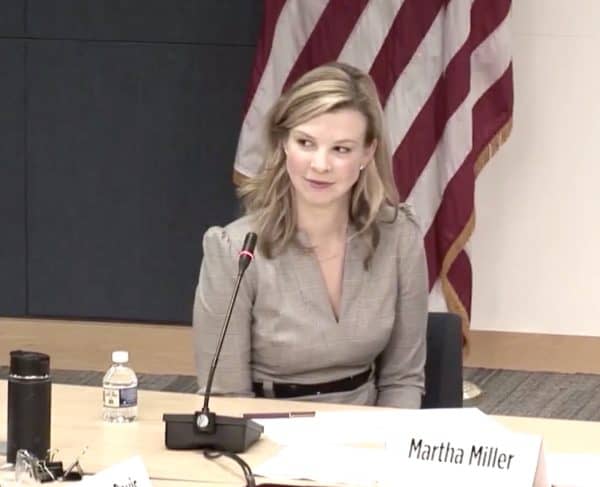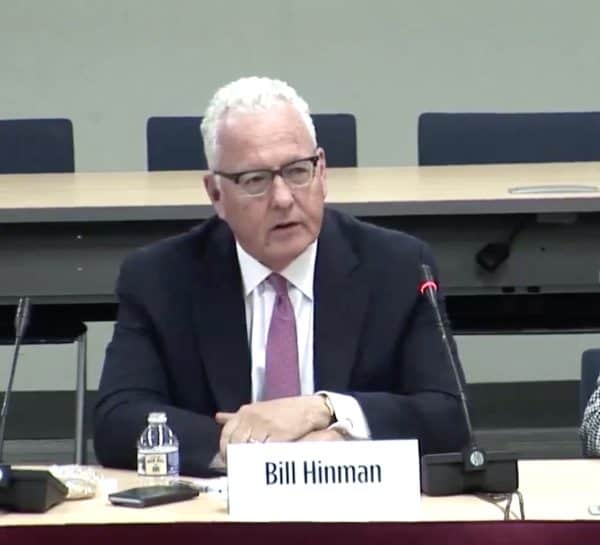Earlier this week, the inaugural meeting of the Small Business Capital Formation Advisory Committee (SBCFAC) took place at the Securities and Exchange Commission (SEC) in Washington, DC. The new Committee brings together a diverse group of small business proponents including several Fintechs. Led by Martha Miller, the Small Business Capital Formation Advocate at the SEC, the meeting saw the participation of SEC Director of Corporate Finance, Bill Hinman, provide an update on regulatory items of note for the online capital formation sector.
 CorpFin has oversight over the existing securities exemptions including Reg D, Reg A+, and Reg CF – each exemption is utilized to raise capital online.
CorpFin has oversight over the existing securities exemptions including Reg D, Reg A+, and Reg CF – each exemption is utilized to raise capital online.
Hinman said the SEC will soon be reporting on both Reg A+ and Reg CF, both part of the JOBS Act of 2012, and how they have been used since they became actionable, perhaps providing valuable insight into progress of the exemptions.
Reg A+ allows an issuer to raise up to $50 million in an “IPO light” type offering requiring extensive offering documents while Reg CF allows an issuer to raise up to $1.07 million via online, FINRA regulated, “portals” or broker-dealers.
Hinman said both he and the SEC Chair, Jay Clayton, have been looking at improving access to capital beyond the coastal centers of innovation. Chair Clayton has consistently stated that access to capital was a top priority for his tenure at the Commission.
Hinman said the SEC was in the process of reviewing previous recommendations which were submitted by this Committee’s predecessor.
Speaking specifically about Reg CF, Hinman characterized the exemption as still small in contrast to other exemptions when considering amounts raised:
“We do think it is important and we want to make certain we optimize Reg CF.”
Hinman reported that the SEC has been receiving a lot of comments as to how the exemption can be improved.
“Right now we count about 1300 offerings done under the crowdfunding [Reg CF] regulation. Out of that 1300, a little less than half, about 520 or so, have actually raised the targeted amounts. And I think a total of about $110 million has been raised. So, relative to Reg D, or even Reg A, the amounts are modest, but the numbers are increasing and we hear a lot of interest when we go out and speak around the country. So this is something we will be keeping an eye on.”
Hinman said the SEC will be looking for the Committee’s recommendations when it comes to Reg CF. Hinman said there might be some things they can do to improve the exemption, such as raising the limits for the amount that can be raised as well as the amounts that investors can put in.
In months past, a group of Fintech leaders in the US petitioned Chair Clayton to raise the Reg CF limit to $20 million.
“We are interested in the Committee’s thoughts on crowdfunding…,” Hinman stated.
Hinman also addressed Regulation A (Reg A+), Title IV of the JOBS Act. This updated exemption was segregated into two tiers with tier 2 allowing an issuer to raise up to $50 million while being exempt from state review (blue sky). The SEC is due to report on the status of Reg A+ this year as well.
Hinman said they are going to be looking at the size of raises under tier 2 of Reg A+ perhaps intimating an inclination to push the cap higher. There have been previous discussions, and proposed legislation, to mandate an increase for Reg A+, thus making it more palatable for larger issuers.
Tier 2 has gotten a lot of activity, according to Hinman. In part because of lack of state review (tier 1 must be state reviewed) – a costly and time-consuming task for an issuer and the reason old Reg A was never utilized.
“We see a lot of folks doing tier 2 offerings at amounts that could have been raised under tier 1. So they are willing to go a little bit further in the disclosure and live with tier 2 standards to afford themselves the preemption protections.”
Since Reg A+ came into existence, Hinman reports that 360 offerings have been submitted under tier 2. About 277 have actually been qualified by the SEC Staff and 132 of these offerings have actually raised proceeds.
“There is a bit of delay from when folks get qualified as to when the deal gets done.”
The total amount raised under tier 2 has been $1.4 billion, according to Hinman, an average per deal of about $10.6 million.
“Again, we are looking at the size limits there,” said Hinman. “And other ways that may be improved.”
Hinman said the Committee’s input will be very valuable.
“We are looking as to how we can harmonize our private placement exemptions,” Hinman explained. “We are thinking about doing a concept release on the harmonization of our various private placement exemptions. There is a whole network of exemptions, some would call it a patchwork, that have grown over time, some by statute … Reg D being the larger and most often used.”
Hinman posed the rhetorical question as to can the SEC do things to make this patchwork of exemptions fit better together and better serve a company’s lifecycle.
He touched upon the current definition of an accredited investor, a rule that excludes most of the population from participating in the majority of exempt offerings – something many people view as a regulatory disenfranchisement.
“Right now we see a very binary system in terms of accredited investors. Generally, if you are an accredited investor you can invest unlimited amounts – if not [accredited], you cannot invest a penny.”
Hinman said they want to examine if this is the “right approach.” Perhaps there are opportunities to scale access across all exemptions.
The discussion regarding the definition of an accredited investor was described as a forthcoming, significant release, from the SEC.
 Many crowdfunding industry participants believe that Reg CF is mortally wounded in its present iteration, exemplified by the lack of utilization and its many obvious flaws. Any change to the definition of an accredited investor could go far in fixing the overall shortcomings of online capital formation.
Many crowdfunding industry participants believe that Reg CF is mortally wounded in its present iteration, exemplified by the lack of utilization and its many obvious flaws. Any change to the definition of an accredited investor could go far in fixing the overall shortcomings of online capital formation.
Most other international jurisdictions do not offer a “patchwork” of exemptions. Typically there is only one with some segmentation between investor sophistication.
Depending on what the SEC finally produces in its harmonization project, the Commission has a unique opportunity to improve access to capital, as well as access to investment opportunity, for the entire country. While no timing on the pending concept releases was provided, one would assume the reports will surface in the coming months.
Small Business Advocate Martha Miller said they hear a lot of questions about progress at the SEC pertaining to access to capital. She said they ask “where is it?” She said here it is … referencing Hinman’s comments and the forthcoming concept releases.


